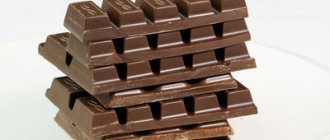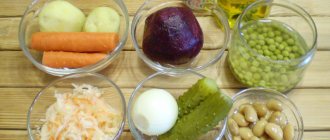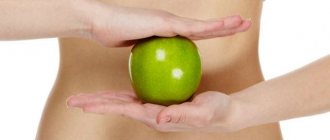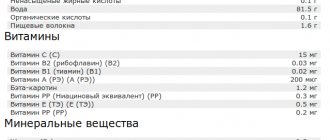Causes of stomach ulcers
First, let's figure out how a stomach ulcer occurs in the first place. As already mentioned, this occurs as a result of a weakening or reduction in the production of natural protective factors of the stomach (and these are gastric mucus, bicarbonates, gastrin, secretin, mucous-epithelial layer, etc.), as a result of which the balance shifts towards the action of aggressive factors (hydrochloric acid, pepsin, Helicobacter). Against this unfavorable background, the less protected area of the mucosa becomes inflamed and an ulcer forms.
Why does this balance shift? There are two main reasons why this happens: infection with the bacterium Helicobacter pylori and long-term use of drugs from the class of non-steroidal anti-inflammatory drugs and glucocorticoids. They account for 97% of all morbidity cases. Don’t know who Helicobacter is and what it is eaten with? Now we'll tell you.
Helicobacter pylori can be safely called a unique bacterium. It is the only one, due to the peculiarities of its structure, capable of surviving in the aggressive environment of the stomach. Moreover, she also has an adequate response to the action of antibiotics. In a word - a universal soldier. Helicobacter infection is about 70% (and in Russia - even 90%), i.e. it belongs to the opportunistic microflora, which under certain circumstances (about which below) begins to multiply intensively and damage the mucous membrane. In addition to the direct damaging effect, it stimulates the production of “ash chlorine” (that is, hydrochloric acid), which is also a damaging factor. It is transmitted through drinking water, unwashed vegetables and fruits, and the saliva of an infected person. Read more about Helicobacter pylori infection here.
As for medications, they also directly damage the mucous membrane and stimulate aggressive factors (impaired gastric motility and increased concentration of hydrochloric acid), weakening the protective ones at the same time.
Favorable background for the development of stomach ulcers
The following factors provide a favorable background for the development of the disease:
- unhealthy diet (for example, regular consumption of coarse and spicy foods, eating on the run, dry food, large time intervals between meals);
- smoking and alcohol;
- mental and physical stress (lack of sleep and rest, working too hard, stress). Secretion and motility of the stomach are primarily determined by the state of the nervous system;
- gender and age;
- hereditary predisposition and constitutional characteristics.
Popular and flavorful
This is, of course, dill. The plant has been used as food for over 5,000 years, and in ancient Italy it was considered an excellent bouquet for a beloved lady. The medicinal properties of dill were known and used by ancient Egyptian doctors; the plant is mentioned in the works of Avicenna, who advised not to overuse dill as a medicine. This is due to the antihypertensive properties of the plant - it can significantly reduce blood pressure.
Our mothers and grandmothers used dill when caring for babies. Dill water saved babies from stomach cramps and relieved flatulence. For gastritis, this property of dill water is also widely used - for discomfort and unpleasant sensations in the stomach, for frequent pain, just brew dill seeds - and the unpleasant sensations will disappear.
Dill water recipe
Pour a teaspoon of dry dill seeds into a glass of boiling water and place in a thermos overnight. In the morning, strain the infusion - the medicine is ready. For abdominal pain and flatulence, take a quarter glass of dill water 2 to 3 times a day until the painful symptoms disappear. The product is effective, affordable, and, most importantly, natural.
Useful composition
Dill is very useful for vitamin deficiency and health problems. The plant contains:
- carotene (vitamin A), vitamin C, flavonoids with antioxidant and
- immunostimulating properties;
- folic acid – necessary for normal metabolism and hematopoiesis;
- calcium is the main element for strengthening bones and joints;
- potassium is an electrolyte necessary for the normal functioning of the heart and blood vessels;
- essential oils – have a stimulating and stimulating effect, imparting aroma to the plant.
How does it affect digestion?
Dill is an indispensable stomach aid for gastritis. By enhancing secretion, dill helps break down dietary fiber. If you “sinned” and ate something fatty, don’t forget to add dill to the menu; fatty foods will be digested faster. At the same time, dill will remove bloating, constipation and pain.
Important! For gastritis, the best way to use dill is to add fresh chopped herbs to prepared dishes - soups, side dishes and salads. If you have high acidity, you should not overuse dill, as the spice enhances the production of hydrochloric acid.
Symptoms of a stomach ulcer
The first symptoms of a stomach ulcer are pain that occurs in the epigastric region (“under the stomach”) on the left (with an ulcer of the body of the stomach) or on the right (with an ulcer localized on the border between the stomach and the duodenum, or in the duodenum itself) . The pain is not concentrated strictly in one place and can radiate to the left half of the chest or to the lower back. The appearance of pain in connection with eating is very indicative. There is also a gradation here: if pain appears 30-60 minutes after you eat, this may be evidence of a stomach ulcer, after 2-3 hours - a duodenal ulcer. Less commonly, so-called “hungry” pain (on an empty stomach) or night pain (from 11 pm to 3 am) appears, which usually occurs with a duodenal ulcer. An indicator of the ulcerative nature of the pain is its subsidence after taking antispasmodics or antacids, applying heat or eating food (the latter is more typical for “hungry” and night pain).
Another “talking” symptom is acidic vomiting of stomach contents, which occurs at the peak of pain and partially relieves it, which can give the patient the idea of inducing it artificially.
Other dyspeptic symptoms are also common with ulcers: heartburn, belching, constipation. As a rule, there is no deterioration in appetite, quite the contrary. But body weight does not increase, the reason for which is the patient’s self-restraint in eating due to fear of the appearance or intensification of pain.
It is worth mentioning such a form of peptic ulcer as an asymptomatic ulcer. In such cases, the disease is discovered by chance, often in a complicated form.
Peptic ulcer disease develops in a sinusoidal manner, with temporary exacerbations and weakening. Exacerbations overtake the patient in the spring or autumn and last from 1 to 2 months.
You ask - we answer
Is it possible to eat pancakes with gastritis with high acidity?
- It is possible, but in moderation. Eating pancakes does not greatly affect the acidity level, but you should follow the rules of consumption.
Is kefir allowed in a recipe?
- Yes, you can use kefir, fermented baked milk and other dairy products, this will only be a plus.
How can you increase and decrease the caloric content of pancakes?
- Everything directly depends on the filling. To make the dish less fatty and high in calories, choose vegetable ingredients or cottage cheese. To increase energy value, fruits, berries, and jam are suitable.
How many times a week can you eat pancakes if you have gastritis and ulcers?
- Gastroenterologists do not recommend eating them more than three times every two weeks.
Is it possible to lose weight by eating pancakes?
- It all depends on the quantity consumed. If you eat one pancake before 12 noon, it will not affect your figure in any way.
Share:
Treatment of stomach ulcers
In the absence of complications in the treatment of stomach ulcers, drug treatment in combination with diet therapy is used. Treatment has two goals: to get rid of Helicobacter and reduce the acidity of gastric juice while eliminating pain and other unpleasant symptoms. The first problem is solved by taking antibiotics from the macrolide groups (erythromycin, clarithromycin), penicillins (amoxicillin) and other antibacterial agents (metronidazole). To solve the second problem you need:
New side effect of treatment with proton pump inhibitors discovered
- proton pump inhibitors (omeprazole, lansoprazole, rabeprazole, pantoprazole);
- histamine H2 receptor inhibitors (ranitidine, cimetidine, famotidine);
- antacid drugs (almagel, alumag, almol, gastal, rennie);
- gastroprotectors (de-nol, sucralfate, ventor).
Surgical treatment of gastric and duodenal ulcers is indicated in the presence of complications or frequent relapses or prolonged non-healing of ulcers.
Parsley - mineral champion
Much is known about the healing properties of parsley: in historical literature the plant is mentioned as a commodity equivalent to gold. It is difficult to imagine a Slavic table without parsley; it has been used for a long time and everywhere. Just 50 grams of fresh parsley per day completely covers a person’s daily need for minerals.
Valuable Components
Parsley leaves and roots contain the following substances:
- Vitamins A and C, folic acid in large quantities;
- B vitamins necessary for the normal functioning of the central nervous system;
- Potassium, sodium, magnesium, zinc. Sodium is necessary for normal water-alkaline balance, magnesium is necessary for brain function and intelligence. Zinc is a real “male” element that preserves youth.
Is it possible to eat if the gastrointestinal tract is bothering you?
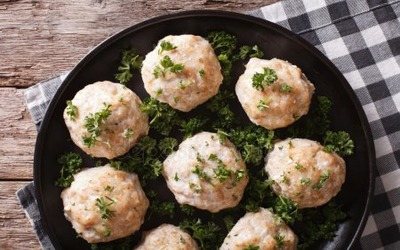
For gastritis of any form, parsley is not only not contraindicated, but is also actively recommended by nutritionists. Add the roots of the plant when cooking broth - they will help transform ordinary soup into a healthy and mineral-rich product.
Chopped herbs perfectly complement meat and fish dishes; your steamed cutlets, seasoned with parsley, will take on a completely different look and unique aroma.
Parsley stimulates the appetite and stimulates the functioning of the stomach and intestines. With regular use of parsley for gastritis, heaviness in the epigastrium, pain and even diarrhea disappear. Parsley promotes bile production, cleanses the liver, and enhances intestinal motility. Parsley is indicated for any form of gastritis, including erosive and atrophic. The spice can be consumed fresh, crushed, as well as frozen and dried.
Interesting! Frozen parsley contains twice as much potassium as fresh parsley. The beneficial properties of the frozen product are preserved for several months. Parsley also perfectly whitens teeth and skin, and eliminates bad breath.
Diet for stomach ulcers
Bananas contain antibacterial substances that inhibit the growth of Helicobacter pylori[/caption]In conclusion, a few words about the diet of a patient with peptic ulcer disease. Such patients are transferred to fractional meals, when they eat little and often. Fried, smoked, pickled, spicy, and carbonated foods are excluded from the diet. Raw fruits and vegetables rich in fiber (cabbage, peaches, pears), strong broths, coffee, cocoa, and alcohol are not recommended. Food should be rich in vitamins and proteins. A typical “ulcer” breakfast: milk with oatmeal or semolina porridge and a soft-boiled egg. Meat and fish are steamed or boiled, and apples, carrots, beets, and black currants are eaten only in pureed form.
Pancakes for gastritis
Do experts allow you to eat pancakes for gastritis? Of course, the dish contains a small amount of beneficial properties, but rather more nutritional ones.
The best option would be to avoid eating pancakes. But, if you cannot overcome the craving for flour and sweets, and you are already tired of home-made oatmeal cookies, then pancakes are the best alternative to store-bought sweets, candies and fast food products.
You definitely need to consult with a gastroenterologist who, in accordance with your tests and individual indicators, will sensibly assess the situation and give competent advice on this matter.


